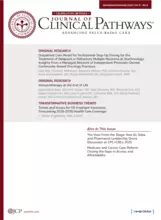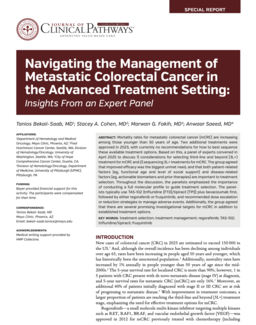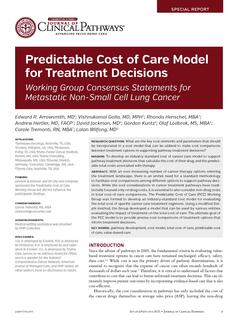Study Shows Promising Safety and Efficacy of ABR Combination in Mantle Cell Lymphoma
A multicenter phase Ib trial evaluating a combination of acalabrutinib, bendamustine, and rituximab (ABR) demonstrates promising safety and durable efficacy in patients with treatment-naïve (TN) and relapsed/refractory (R/R) mantle cell lymphoma (MCL). These results support the further investigation of ABR in ongoing phase III trials.
The study (ACE-LY-106; NCT02717624) enrolled 18 patients in the TN cohort and 20 in the R/R cohort. Participants received continuous acalabrutinib (100 mg orally twice daily), with bendamustine administered intravenously on days 1 and 2 of each 28-day cycle for up to 6 cycles, and rituximab on day 1 of each cycle. TN patients achieving a response continued on maintenance rituximab every other cycle beginning at cycle 8 for up to 12 doses.
With a median follow-up of 47.6 months for TN patients and 20.4 months for the R/R cohort, the study reported high overall response rates (ORR): 94.4% in the TN group and 85.0% in the R/R group. Complete response (CR) rates were also notable, at 77.8% and 70.0%, respectively. Median progression-free survival (PFS) and overall survival (OS) were not reached in the TN cohort, while the R/R group showed a median PFS of 28.6 months, with OS also not yet reached.
The ABR regimen was well-tolerated, with no new safety signals identified. Most adverse events (AEs) were grade 1 or 2, though grade 3 to 4 AEs were reported in 72.2% of TN and 85.0% of R/R patients, most commonly neutropenia. Three treatment-related deaths occurred: one from pneumonitis (TN), and two in the R/R group from COVID-19 and cerebrospinal meningitis.
The findings are particularly significant given the evolving role of bruton tyrosine kinase (BTK) inhibitors in MCL therapy. Acalabrutinib, a second-generation BTK inhibitor, was designed for increased selectivity over first-generation agents like ibrutinib. Its improved tolerability, especially regarding cardiovascular side effects, makes it a promising partner in combination regimens.
In contrast to the higher toxicity rates seen in previous trials such as SHINE, which tested ibrutinib in combination with bendamustine-rituximab, this ABR regimen displayed a more favorable safety profile. These results point to the potential for safer, more effective frontline options for MCL, particularly for patients unable to tolerate more aggressive therapies.
Given the high response rates and manageable safety profile, the ABR combination is now under further evaluation in the placebo-controlled phase III ECHO trial, which will assess its long-term benefits in patients with TN MCL.
Reference
Phillips T, Wang, M, Robak T, et al. Safety and efficacy of acalabrutinib plus bendamustine and rituximab in patients with treatment-naïve or relapsed/refractory mantle cell lymphoma: phase Ib trial. Haematologica. 2025;110(3):715-724. doi:10.3324/haematol.2023.284896













